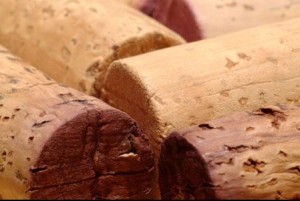Â

As I sit down to write this, I can already envision the hate mail I’m going to receive from wine purists. The reason for that is because so many wine drinkers believe that the only way that a bottle of wine should ever be sealed is with true cork. I have to say that I just don’t agree with that. Here’s a few reasons as to why.
Â
Cost
Cork cost money. By switching from real cork to either a synthetic cork or a screwcap, wine makers can shed money off their costs, which they can in turn pass on to you. More and more of your up and coming vineyards are switching to the use of screwcaps and synthetic corks to help them achieve the affordable wines they need to make themselves competitive in an ever growing wine market.
Taste
I’ll never be able to say for certain that a real cork can enhance the taste of the wine, but one thing I do know is that a rotting cork can add bad flavors and ruin a perfectly good bottle of wine. As not everybody knows how to properly store a bottle of wine, there are times when your cork can actually be a detriment to the wine. Whether it’s by falling apart and letting air into the bottle which can, in turn, turn the wine into very expensive vinegar, or crumbling into the bottle itself, real cork is unreliable in its ability to preserve wine.
Sediment
If there’s one thing I can’t stand when drinking a glass of wine, it’s when I have sediment from the cork at the bottom of my glass. While simple floaters in the bottle from opening the bottle and driving the corkscrew through the cork and into the bottle are bad enough, cork that has dried out too much and then fallen apart into the bottle can quickly turn into a grainy sediment at the bottom of the bottle that can ruin your enjoyment of the wine by altering the taste and the texture as you go for that last drop.
Opening Ease
While screwcaps are by far the easiest way to open a bottle of wine (no corkscrew required), synthetic corks are still easier than real corks for one simple reason: they don’t break apart. I’m a professional bartender and have opened more than my fair share of wine bottles through the years, but even I have cracked, crumbled, and broken corks. Synthetic corks won’t shatter, crumble, and don’t shed anything into the glass if you push through them with your corkscrew. There’s no concern about ruining a bottle in the opening process, and that’s a big win in my book.
There’s No Right Answer
In the end, there really is on right or wrong answer to the debate of which method of sealing wine bottles is best. Wine reviews, sommeliers, and experts can debate it for all time, but in the end, the only thing that really matters is the wine, and whether the cork affects that or not can only be determined by opening bottles of wine and enjoying them, which I am more than happy to be the first to do.
One of the more unusual corks I have seen lately was actually made out of glass, with a silicon seal. Very smart actually.
I don't doubt what you are saying. However, I just read a few articles about how the trees that provide our cork take out more Co2 when the cork is harvested than if they are allowed to grow. The tree's cork is harvested over a period of years, and the tree generates new growth during this time. I read that this a very important sustainable industry in Portual. I found this information after I googled cork recycling and found a company in Missouri that is accepting real cork for recycling. A youtube video on this site shows how the long-term benefit out-weighs the short-term savings from switching to cheaper stops. The website is http://www.yemmhart.com